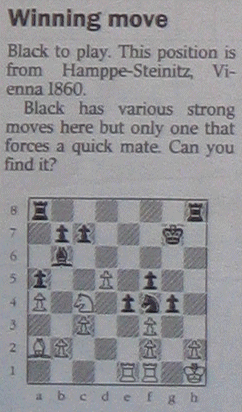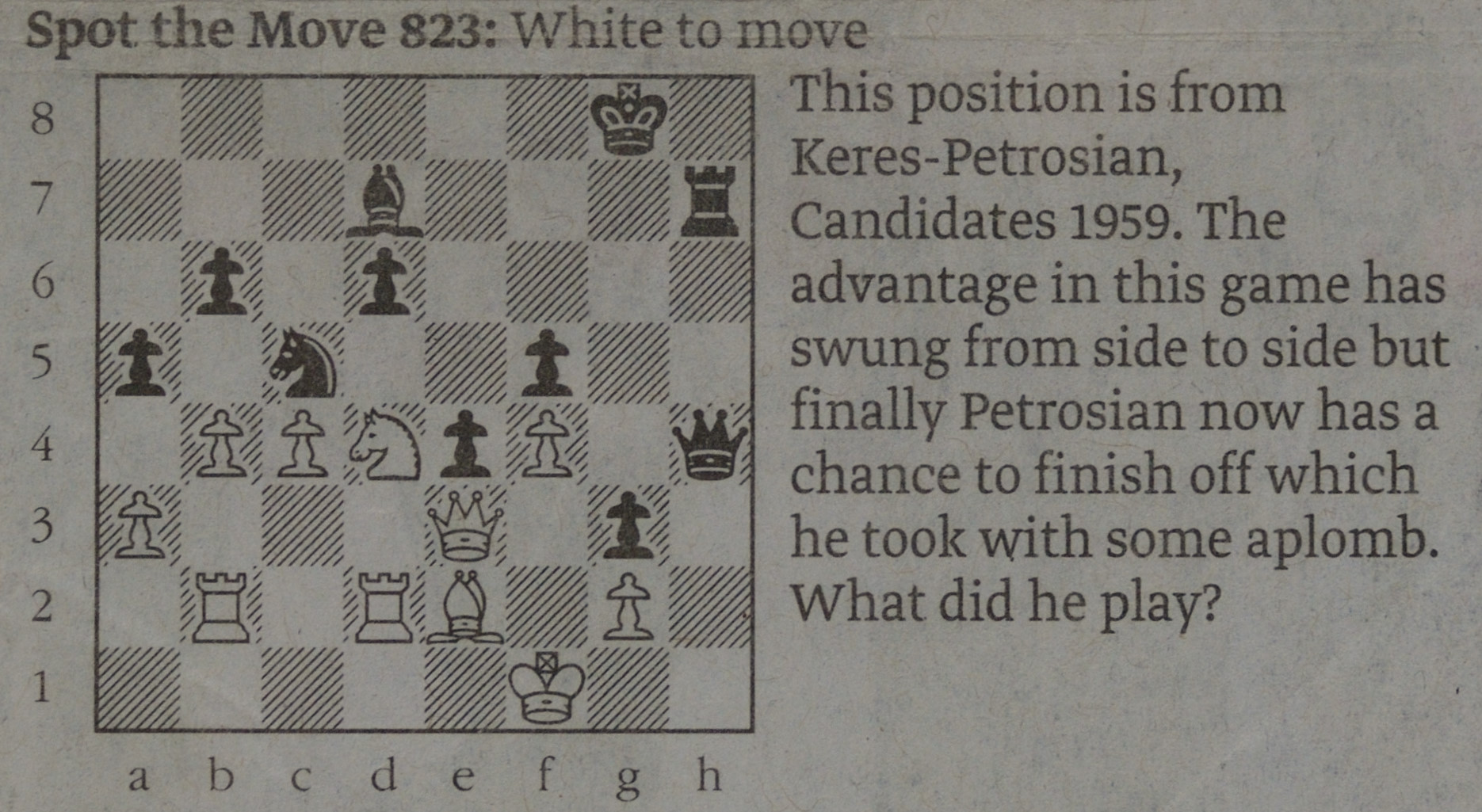How to win The Times' chess competition
I have won the The Times’s chess competition twice, The Saturday competition and the Sunday competition once each.
How can you win, bank the cheque and get to read your name in the paper? There’s two ways: the straightforward, simple way or my way.
First you need to know how the competitions work. Every Saturday and Sunday a chess puzzle is published. The challenge begins with locating the puzzle, which may be hiding next to things nobody wants to read like the obituaries or yesterday’s closing prices for FTSE 100 shares. Once located, work out the answer. The format of the competition requires you to only send in the first move – The Times doesn’t really want to wade through lines and lines of chess notation for every entry. This works well since you can’t really guess the first move without knowing the full sequence of moves and it saves them a lot of time deciding if an entry is correct or not. Having worked it out, send your answer in to The Times, who will randomly choose one person as the winner from everyone who submitted a correct answer. Metaphorically they draw entries from a hat, I say metaphorically because I don’t think there really is a hat.
The simple way to win
Let’s assume that the Saturday paper gets 150 entries and the Sunday paper, which has almost twice the readership, gets 300. At the current ratio of weekends to years, my naive expectation is that if you can send the correct answer every Saturday for three years, you’ll probably win at some point. And for the Sunday Times puzzle simply send the correct answer in every Sunday for six years, which should be enough to get a win. Probably.
My way to win
The other way is not to be relentless but to be lucky. I certainly was.
My first win

The first time I won, it was the Saturday competition.
The puzzle was unusual in that the solution is not a sequence of forcing moves. There are multiple responses white may play to the correct move from black. This is quite rare, usually there is only a single path to checkmate or one path to an overwhelmingly winning position. Here if black plays the right move, he can force checkmate whatever white plays.
Less unusual was that the checkmate was substantially helped by a bishop on the long a7-g1 diagonal. It’s easy to miss the effect of a bishop because it moves at an angle to the other pieces, and it’s even easier to miss the effect of a bishop over a long distance, tucked far away from the action in a corner of the board.
Finally, I should mention the date, this puzzle was the last Saturday before Christmas. The pre-Christmas panic was at its peak and fewer people than normal would have bought the paper that day, and of those, I reckon a smaller percentage of readers would have had time to look at it.
My second win
My second win was the Sunday Times’ competition. This one is much harder to win because it tends to be a more difficult puzzle and the Sunday Times’ readership is very large.
I don’t remember this one as vividly other than it took me most of the week to work it out. Take a quick look at it and see if you can find the move.

I was extremely confused by the puzzle because it didn’t appear to make sense. In exasperation, I wondered if there had been a mistake, the puzzle said white to move but, in fact, I could see a move for black that would win if it was black’s turn. Reading the description implied it was black’s turn, but it clearly stated “white to move”. Based on the assumption that it was black’s turn I sent that move in.

Luck
Each win was a result of considerable good fortune. For the Saturday competition I was lucky that most people have a blind-spot for distant bishops, that it was untypical in having two paths to force checkmate and lucky that the readership was likely both reduced and distracted by Christmas approaching. For the Sunday competition I was lucky that a mistake lead to the puzzle being incorrectly labelled doubtless throwing off many readers.
Luck is a label we attach to things we can’t control. But if that is our definition of luck, everyone who bought the paper on those days was lucky too, and that doesn’t seem right. Luck is not just things that happen out of our control, that’s probably better described as chance, luck requires some level of competence and ability to take advantage of whatever ups and downs come your way. If you want to follow in my footsteps, you need to be able to actually solve the chess puzzles. You may not be quite so enthused by this particular challenge but for anything else that matters to you inevitably the chaos of life will throw things your way, are you going to be able to take advantage of it? If you can, you too can be lucky.